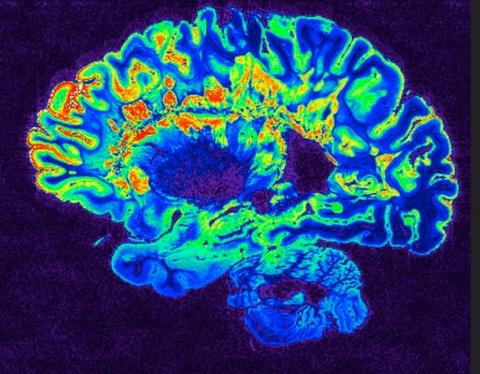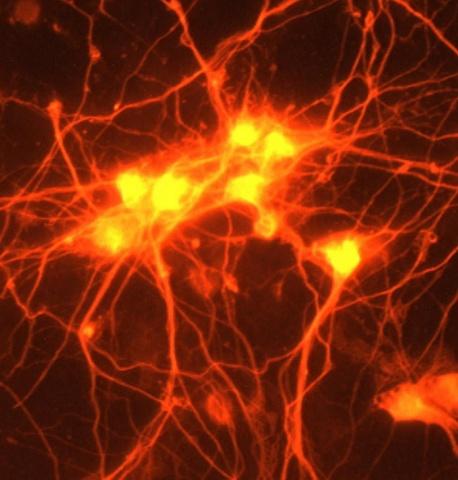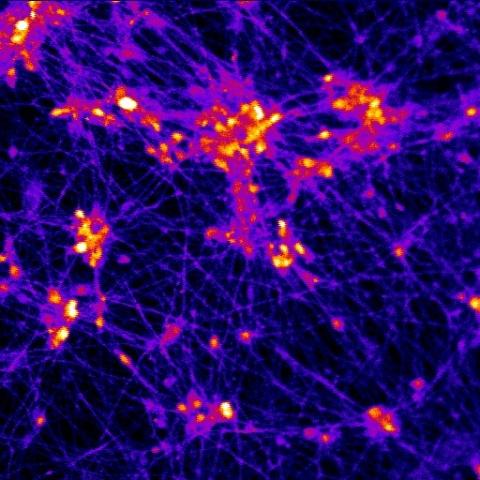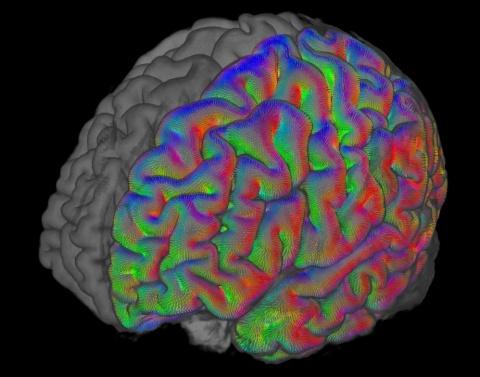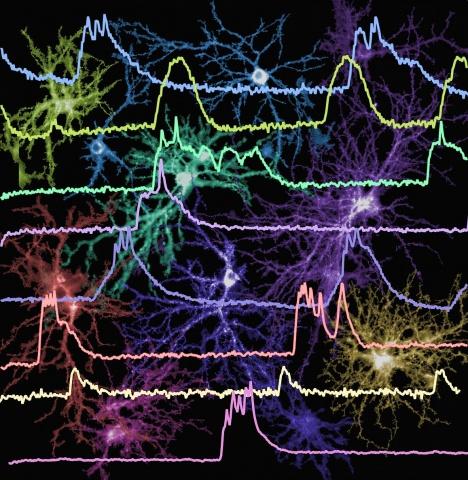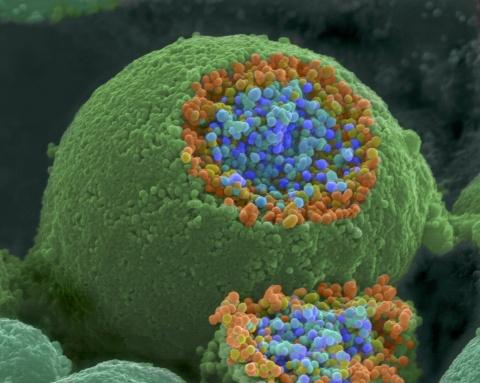Duke Neurology Research Round Up, July 2022
This June, members of the Duke Neurology Department contributed to 12 new peer-reviewed journal articles as well as two new book chapters. Among other findings these studies uncovered retinal differences that may one day act as early biomarkers for cognitive impairment, population-based studies that will improve treatment for stroke and other conditions, and investigations of hydrogel scaffolds as potential therapies.
Duke Neurology Research Round Up, June 2022
Members of the Duke Neurology Department contributed to 13 new peer-reviewed journal articles this May, advancing our understanding of how viruses that kill cancer cells may be used against brain tumors, the optimal treatments for various types of stroke, the origins of Parkinson’s disease, and more. Read the paragraphs below for summaries of our research from the past 31 days, as well as links to the complete articles themselves.
Hospital Neurology
Duke Neurology Research Round Up, May 2021
May is Stroke Awareness Month, and members of the Duke Neurology Department were off to an early start. They contributed to six new peer-reviewed journals investigating stroke this April, bringing our total stroke-related articles published this year to more than 20. In addition to this research, our faculty, trainees, and advanced practice providers authored or co-authored 10 other studies and contributed to books advancing our understanding of Alzheimer’s and dementia, brain tumors, epilepsy, and other conditions.
Duke Neurology at AAN 2022
The American Academy of Neurology (AAN) returned to an in-person meeting this week, bringing together neurologists from around the country and world to Seattle to learn about the latest research and clinical advances in neurology. Members of the Duke Neurology Department are playing a critical role in these proceedings this year, leading lectures and group talks, leading specialist groups, and presenting a dozen posters and scientific abstracts. Our Department’s contributions to AAN this year include the following honors, sessions, presentations, and awards.
Duke Neurology Research Round Up, April 2022
This March, members of our Department contributed to studies that reveal potential new therapeutic targets for Alzheimer’s disease, help triage patients suffering from traumatic brain injury, address issues contributing to physician burnout, and more. In all, our faculty, staff, students, and trainees contributed to 15 studies published over the past 31 days. Read about them and find links to the original articles below.
Parkinson’s and Movement Disorders
Duke Neurology Research Round Up, March 2022
This February, new research from members of the Duke Neurology Department advanced our understanding of the treatment of stroke, brain tumors and amyotrophic lateral sclerosis (ALS) as well as the genetics and origins of Alzheimer’s disease. The 13 journal articles written or co-written by members of our faculty include publications in JAMA, Neurology, the British Medical Journal, and other publications. Read summaries of those studies, and find links to the original articles, in the paragraphs below.
Duke Neurology Research Round Up, February 2022
The first month of 2022 saw the publication of 18 new peer-reviewed journal articles from members of the Duke Neurology Department. Highlights include a new article in Lancet Neurology discussing the epidemiology, diagnostics, and biomarkers of autoimmune neuromuscular junction disorders, case reports describing the progression and treatment options for rare neurological conditions, and a summary of how the first year of the COVID-19 pandemic affects neurology residency programs in the United States.
Duke Neurology Research Round Up, January 2022
Research authored by members of the Duke Neurology Department published during the final month of 2021 advanced our knowledge of stroke, epilepsy, dystonia, and other conditions.
Duke Neurology 2021: A year in review (part 1 of 2)
The Duke Neurology Department continued to grow and expand its missions of providing excellent clinical care, conducting research to improve our understanding of neurological conditions and how to treat them, and training the next generation of neurologists throughout 2021.
Duke Neurology Research Round Up, December 2021
Members of the Duke Neurology Department contributed to 14 new peer-reviewed journal articles written this November. Highlights include an analysis of fragmentation within the delivery of neurological health care, an examination of racial disparities in the use of telehealth, and a discussion of the best ways to use social medicine to share news on epilepsy and clinical neurophysiology. Read the paragraphs below for short summaries of each of these 14 articles, as well as links to the original entries themselves.
Memory Disorders
